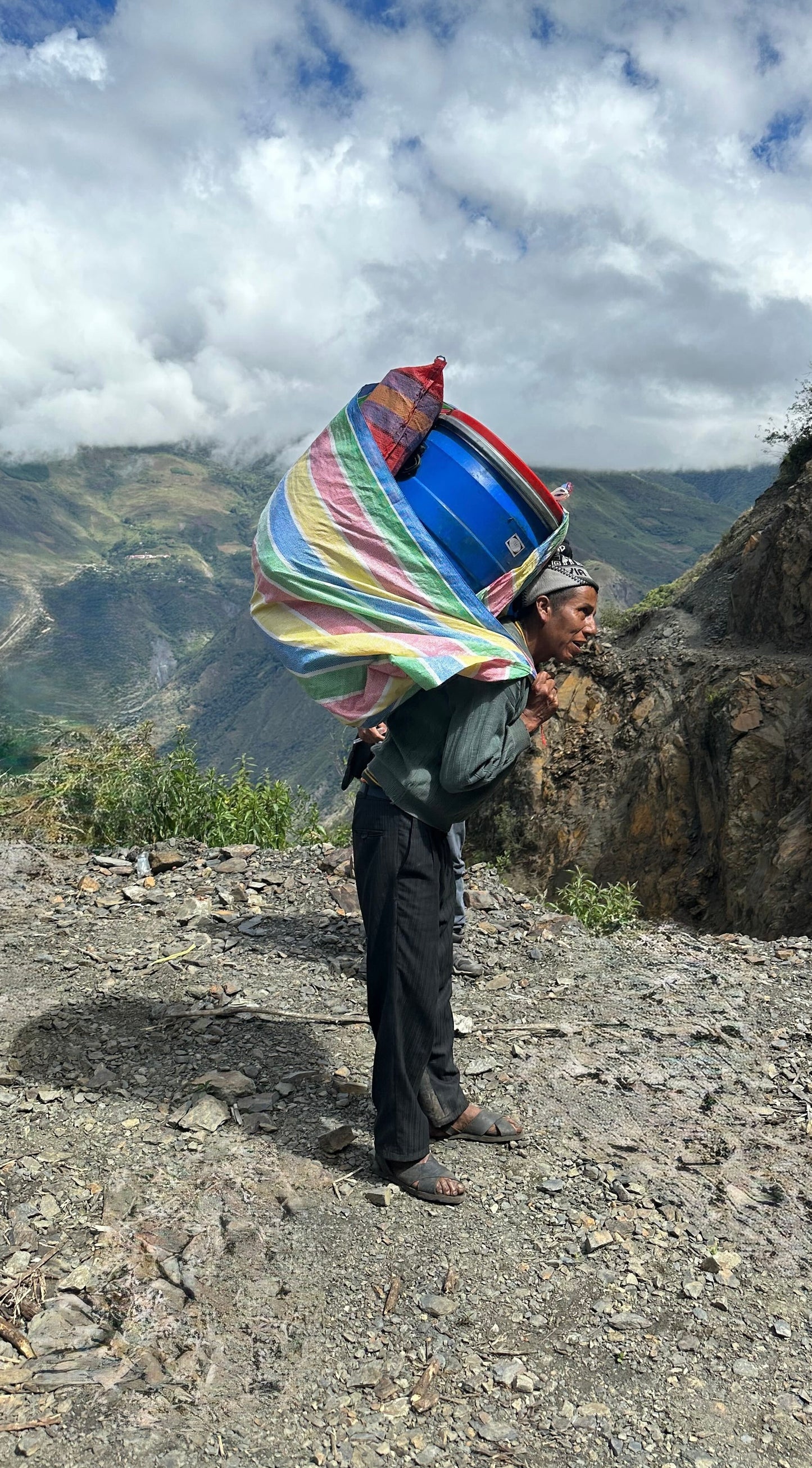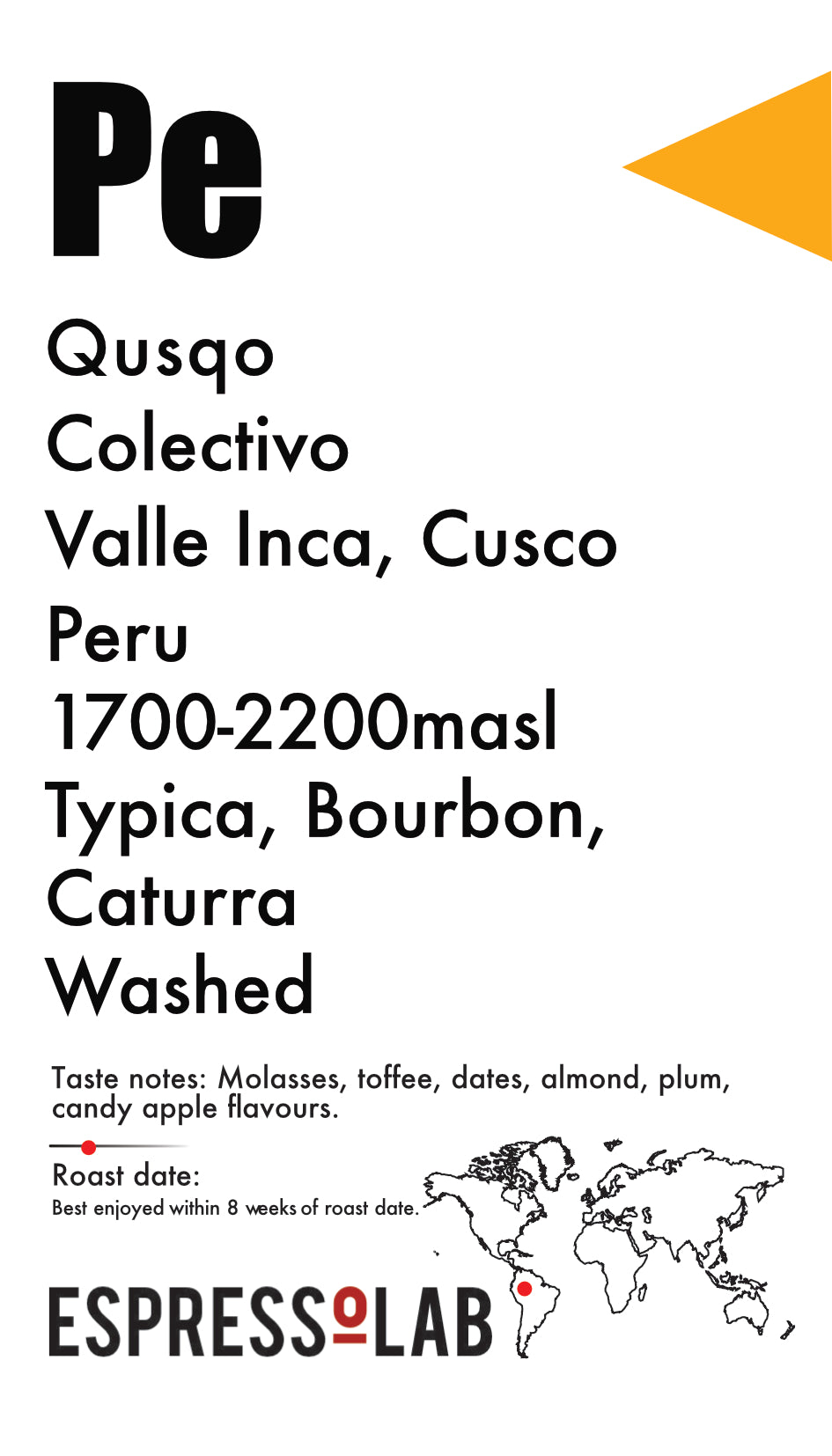Espresso Lab Microroasters
PERU, Qusqo, Valle Inca, Cusco
PERU, Qusqo, Valle Inca, Cusco
Share
Couldn't load pickup availability
Producer: Qusqo Colectivo.
Growing altitude: 1700-2200m above sea level.
Botanical variety: Typica, Bourbon, Caturra.
Process: Washed.
Tasting notes: Molasses, toffee, dates, almond, plum, candy apple flavours.
Roast date: 22 December, 2025
Cusco, once the heart of the Inca Empire, remains a vibrant cultural stronghold in Peru. Here, ancient customs and traditions continue to shape daily life, forming a vital part of the national identity. While known for its snow-capped peaks, glacial lagoons, and high-altitude terrain, Cusco also reaches deep into the Peruvian Amazon—one of the most biodiverse regions on Earth.
It is in this forested frontier, where terrain shifts dramatically over short distances, that some of the country’s finest coffees are grown.
Coffee in Cusco is produced exclusively by smallholder farmers—each managing just 1–2 hectares of land in remote, mountainous communities. The coffee plants, mostly Typica, Caturra, and Bourbon, are intercropped with native Pacay (ice-cream bean) trees that enrich the soil, provide shade, and retain moisture.
Farmers ferment their coffee in wooden or cement tanks for 15–25 hours, followed by slow drying on patios or raised beds under parabolic plastic covers for 10–20 days. This slow, even drying is key to preserving the coffee’s character and shelf life.
Getting coffee out of Cusco’s mountains is a monumental task.
Reaching the central warehouses can require 2 to 12 hours of travel on a mix of paved and dirt roads. From there, roads often disappear completely. Motorbikes, footpaths, and steep vertical climbs are the only options left. Many farmers live hours away from their farms, requiring daily treks to harvest and transport cherries.
During the harvest, farmers must carry ripe cherry from their farms to their homes for processing. Later, carry dried parchment back through mountainous terrain to the nearest collection point
This effort is made even more remarkable by the reliance on an ancient Inca system of communal labor called Ayni, where neighbours support one another during the most demanding times of year.
Most farmers also grow a range of crops—avocado, cassava, corn, sweet potato—to feed their families and sell locally. Many raise poultry and keep beehives for honey and pollination.
Despite the stunning beauty and biodiversity, life in these highlands is far from easy. Altitude, remoteness, poor infrastructure, and limited communication create serious obstacles to agriculture and trade. One of the greatest challenges is the lack of opportunity for young people, who often leave for cities in search of a better future, leaving behind aging populations and young children.
The people of Cusco are no strangers to hardship. They’ve adapted to the mountains for centuries, carrying forward the wisdom of Incan and pre-Incan civilizations.
Their coffee reflects that legacy; resilient, nuanced, and deeply rooted in culture and community.




